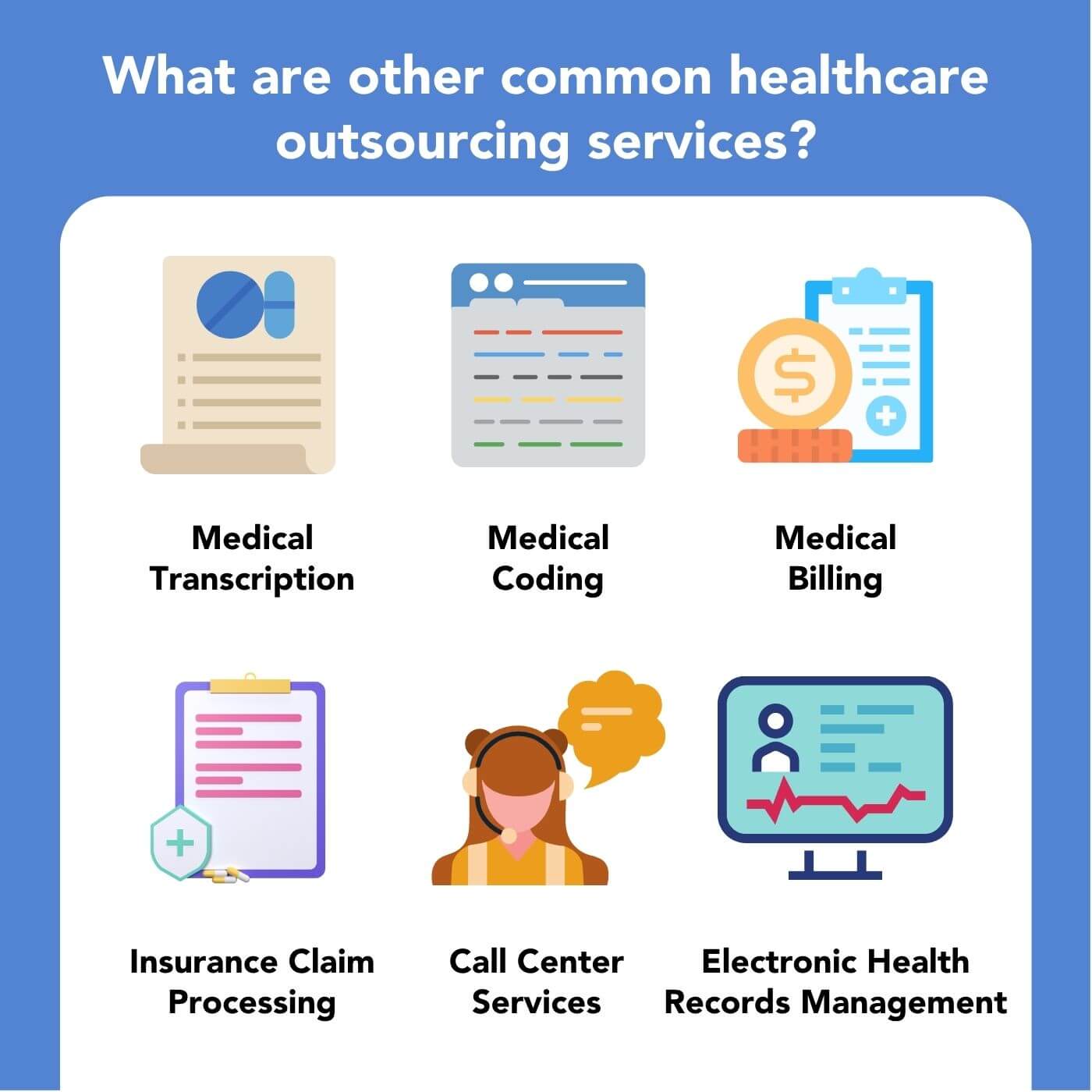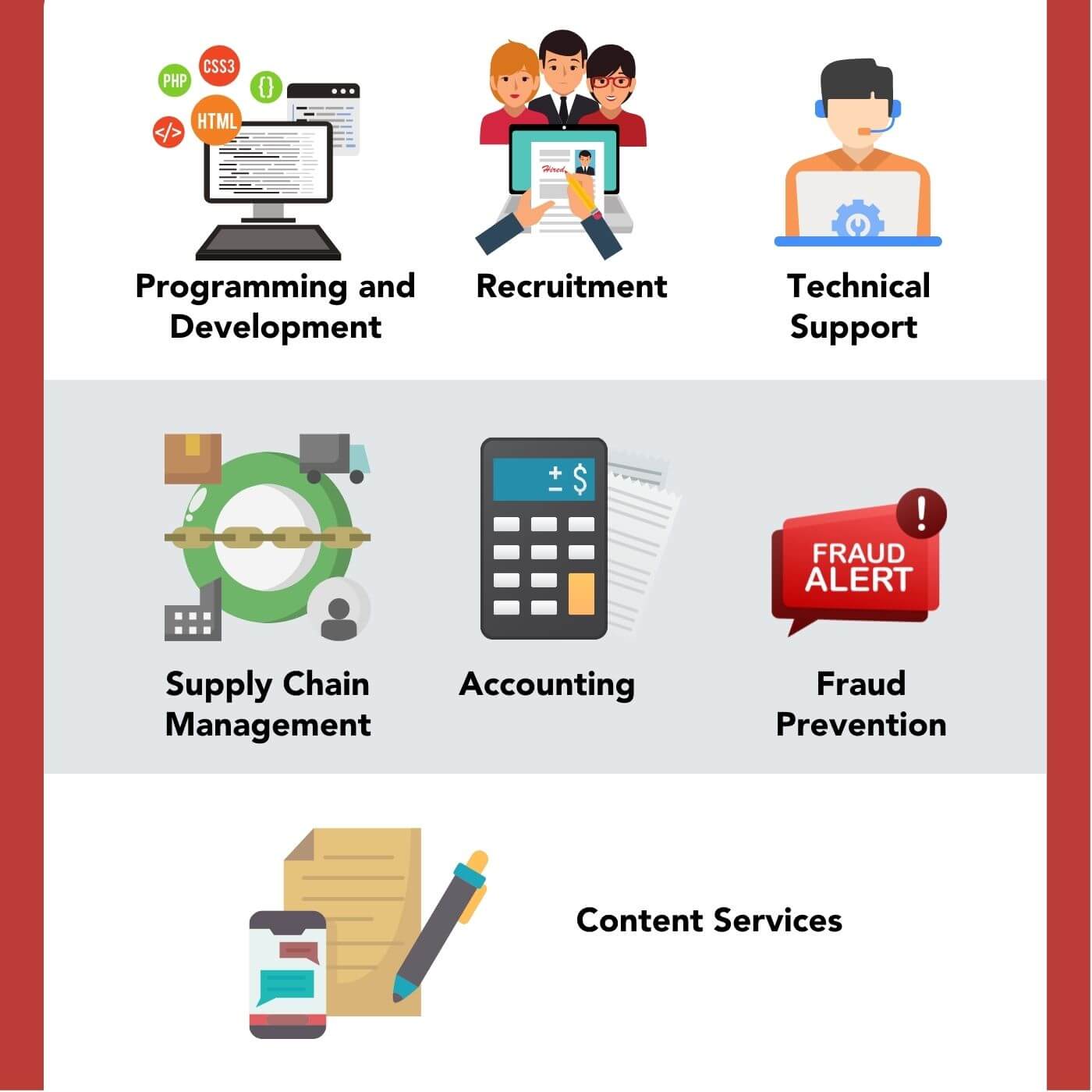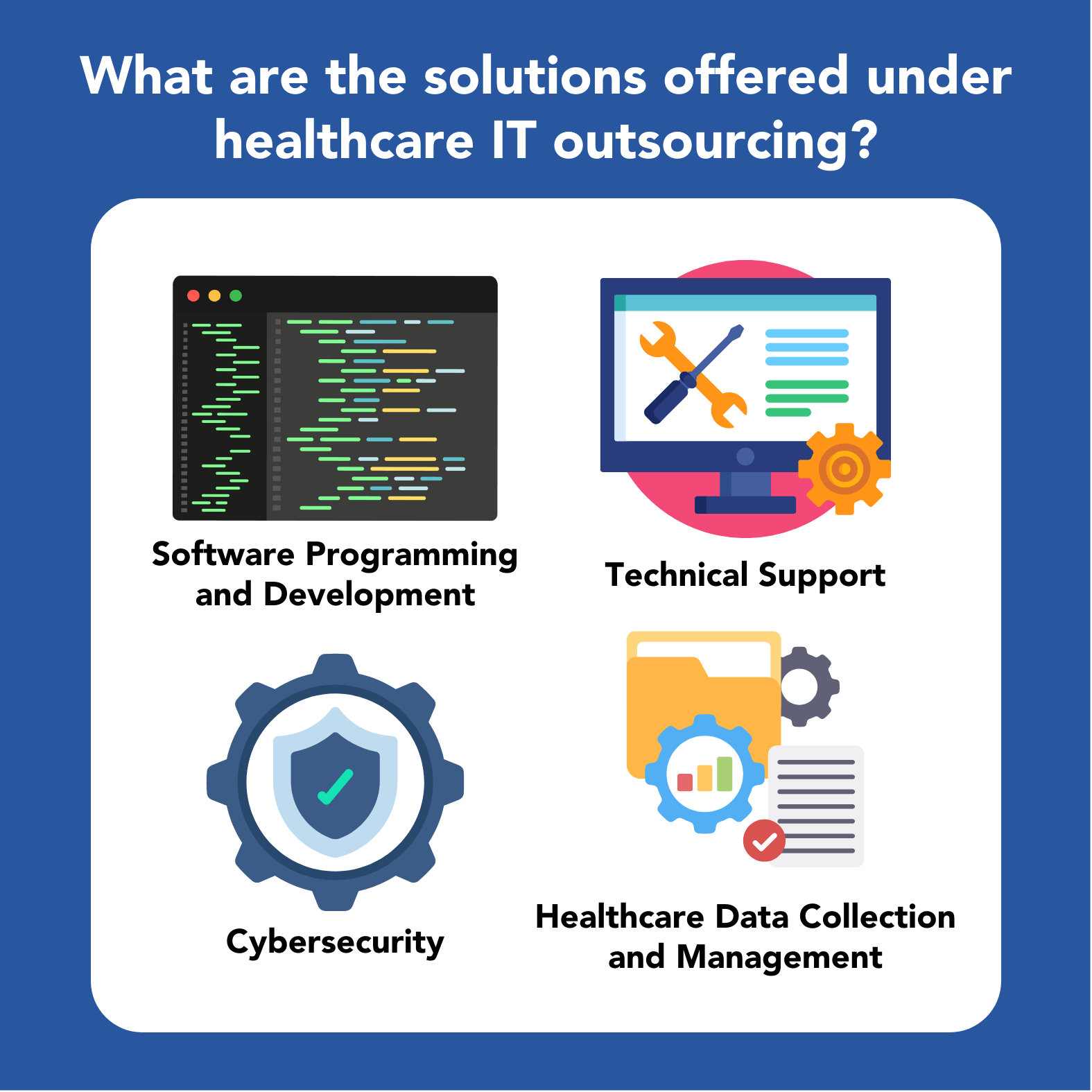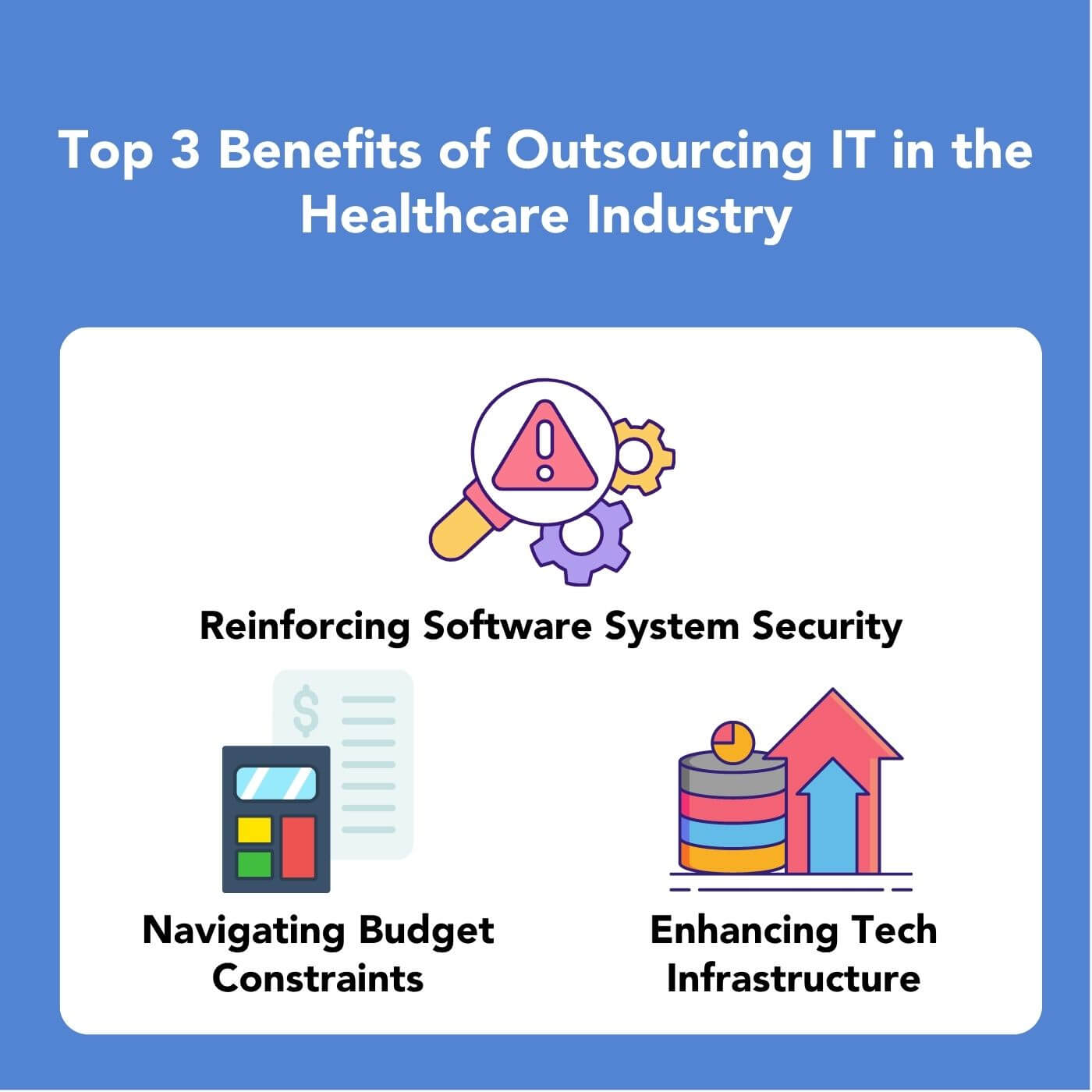
At the height of the COVID-19 crisis, the healthcare sector was stretched to its limit as the sudden and significant surge in demand outpaced the number of available medical workers. The heavy workloads and stressful environment led to the mass resignation of healthcare professionals, creating a critical labor shortage.
According to one report, nearly 1 in 5 health workers resigned from their jobs during the pandemic, with many deciding to switch careers or leave the workforce entirely. Meanwhile, 79% reported that the shortage negatively affected their workplace.
Many hospitals and medical facilities utilize outsourcing to alleviate the burden of their in-house team. If your organization is considering working with a BPO company, read these frequently asked questions about specialty healthcare outsourcing to learn more about this specialized outsourcing solution.
Read More: State of the US Healthcare Labor Shortage in 13 Compelling Numbers
13 Questions About Specialty Healthcare Outsourcing
1. What is specialty healthcare outsourcing?
Specialty healthcare outsourcing refers to delegating non-core clinical support functions to an external provider. Since healthcare is a specialized field, Business Process Outsourcing (BPO) companies that provide this outsourcing solution have highly trained workers knowledgeable about the industry’s specific regulations.
No two healthcare providers will have the same needs and challenges. As such, the right outsourcing company will provide scalable and customizable solutions to meet their specific client’s preferences and goals.
2. Is BPO healthcare outsourcing the same as medical outsourcing?
Although these two terms may seem synonymous, they have critical differences. Healthcare outsourcing is more concerned with filling the gaps in non-core healthcare services.
Meanwhile, medical outsourcing is when facilities outsource core clinical services to third-party medical providers such as physicians, nurses, and other specialists. An example is when hospitals experience sudden and unexpected surges in emergency room cases, so they call for backup medical staff.
3. What are other common specialty healthcare outsourcing services?
BPO companies that provide outsourcing solutions in healthcare can take on a variety of back-office functions, including:

Some medical organizations may also need help with non-clinical support functions, such as:

4. Why should you opt for healthcare outsourcing?
The COVID-19 pandemic has significantly impacted the healthcare industry. Medical workers worldwide experience extreme stress and fatigue, leading many to quit their jobs.
Industry analysts predict that the U.S. will continue to face health worker shortages in the coming decade. To navigate this situation, many organizations opted to outsource, which allows them to maintain their operations while reducing the workload of their staff.
Outsourcing also enables healthcare organizations to speed up task completion for their non-core functions and focus on providing quality patient care, all while minimizing costs.
5. Is healthcare outsourcing for hospitals only?
Although hospitals may be one of the organizations most likely to outsource, other businesses related to the industry also reap the benefits of outsourcing. Examples include pharmaceuticals, medical supply manufacturing, and insurance companies.
6. What are the tasks typically outsourced by insurance companies?
Insurance companies are critical in helping people access and pay for patient care services. As such, insurance companies and hospitals have to work closely together.
Insurance companies’ most commonly outsourced service is insurance claims processing. This solution helps companies streamline lengthy claims, ensure patients qualify before treatments, and prevent fraudulent claims.
Some insurance companies also need assistance with receivables management to ensure that a client’s dues are processed and paid on time.
7. What are the tasks typically outsourced by pharmaceutical and biopharma companies?
Pharmaceutical and biopharmaceutical companies develop, manufacture, and distribute drugs and medications critical to healthcare facilities’ operations and patients’ health. Outsourcing enables these companies to improve their operational efficiencies, expand their geographical reach, and enhance on-demand services.
Supply chain management is one example of an outsourcing solution utilized by pharmaceutical companies. Outsourcing allows these companies to deliver medicine to clinics, hospitals, and individual patients while reducing operational costs.
Some pharma and biopharma companies have also invested in software development and healthcare IT outsourcing services. These organizations have embraced technological innovations and developed websites or mobile applications allowing patients to order their needed medicines online easily.
8. What is healthcare IT outsourcing?
Healthcare IT outsourcing refers to hiring external information technology (IT) providers to fulfill a hospital or medical facility’s IT needs.
The healthcare industry was once reluctant to embrace new technologies. Still, continuing labor shortages have accelerated the need for software and tools that analyze patient data, streamline healthcare operations, and reinvent their business models. Outsourcing allows healthcare providers to hand over their IT problems to capable professionals and focus on their core clinical functions.
9. What are the solutions offered under healthcare IT outsourcing?
Some of the most common services offered by healthcare IT outsourcing providers include:

10. Is IT management under healthcare outsourcing?
IT management is one of the back-office functions offered by many healthcare outsourcing companies.
11. What are the advantages of outsourcing IT management for healthcare companies?
As health systems around the globe struggled with rising patient demand, digital transformation became critical for the healthcare industry to stay afloat. According to Deloitte’s 2022 Global Healthcare Outlook Report, pandemic measures accelerated the need for hospitals and clinics to adopt new technologies such as artificial intelligence (AI), cloud computing, virtual care technology, and data analytics software.
Because of the increased need for medical technology, many healthcare facilities have chosen to work with outsourced IT professionals for assistance. Through healthcare IT outsourcing, medical providers can ensure that their systems comply with HIPAA regulations and are up-to-date, easily upgrade medical platforms and solutions, fix bugs and cybersecurity issues quickly, and access IT professionals who can provide meaningful long-term tech support and strategies.
Top 3 Benefits of Outsourcing IT in the Healthcare Industry

Navigating Budget Constraints
Hospitals and health facilities of all sizes can fall victim to budget constraints.
One way they can cut back on operational costs is through outsourcing. BPO firms can help them keep their systems in check without the additional expense of maintaining an in-house IT team.
Reinforcing Software System Security
All medical software should be kept up-to-date to close up any security loopholes that hackers could exploit.
Fortunately, when you work with outsourced IT professionals, you can rest assured that your software and hardware are constantly up-to-date and secure.
Enhancing Tech Infrastructure
Outsourcing also allows health facilities to keep pace with cutting-edge developments in tech.
BPO firms can upgrade your services by moving them to more optimal platforms. They can also maintain your systems, ensuring all glitches and security issues are handled in real-time. As industry experts, BPOs can also map out impactful tech strategies to help you perform at your best.
12. Why do we recommend that healthcare providers outsource to the Philippines?

Most non-clinical support roles can be performed remotely, so medical centers can save on costs by outsourcing services abroad instead of locally. One of the countries emerging as a key destination for offshore specialty healthcare outsourcing is the Philippines.
Deep Pool of Skilled Talent in Healthcare
The demand for Filipino medical professionals was high even before the pandemic hit. But since COVID-19 broke out, there has been a dramatic increase in demand for the country’s highly sought-after medical frontline workers, particularly in nursing.
By outsourcing, you can tap into this massive talent pool and leverage diverse expertise to fill labor gaps without the added cost of flying them onshore.
Comparative Cost Advantage
Outsourcing is an effective way to offset the rising labor cost onshore.
Additionally, companies that outsource can save up to 60% on operational expenses because commercial space leases and rentals come with significant cost savings.
13. Why Is a Reliable Outsourcing Partner Crucial in Navigating Staffing Challenges?
COVID-19 irreversibly changed the global healthcare landscape, forcing the sector to evolve and keep pace with the rising demand.
Even before the pandemic, the industry relied on specialty healthcare outsourcing. BPO firms have been instrumental in reducing costs, expanding technical capabilities, streamlining operations, and fortifying scalability.
But in the face of a severe pandemic-driven labor shortage, outsourcing is gradually evolving to become the lifeblood of healthcare facilities grappling with the new normal.






